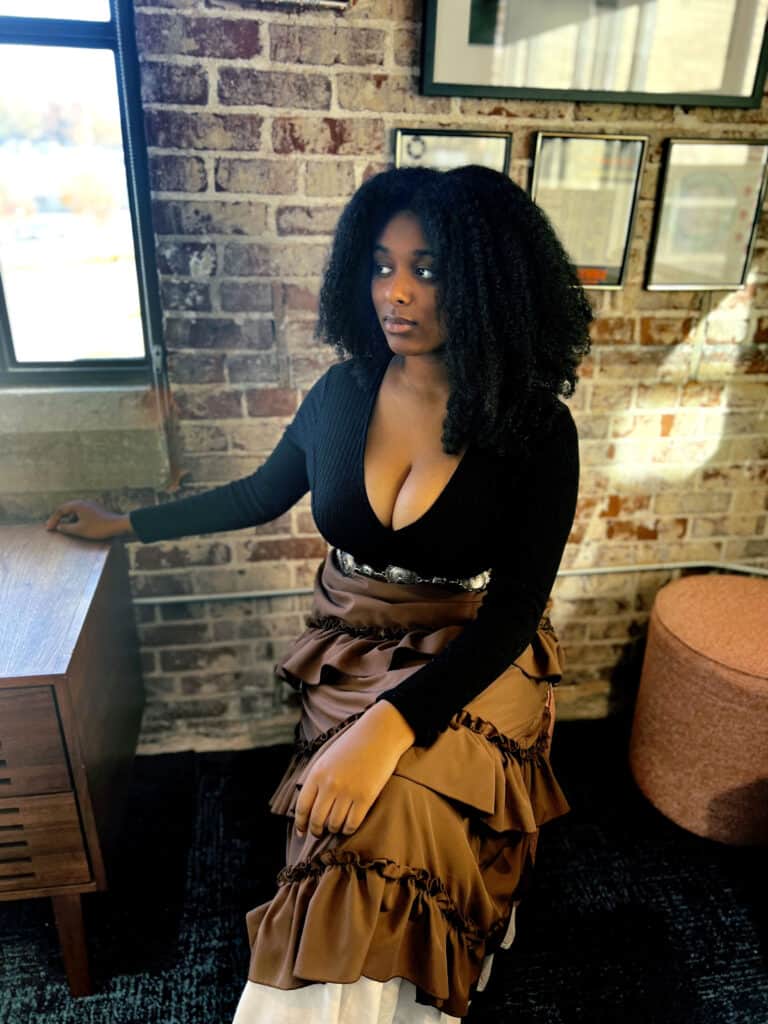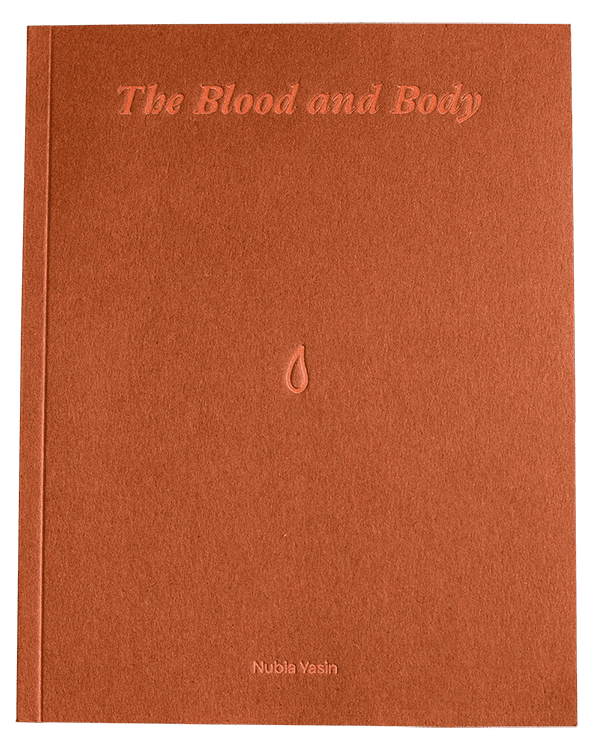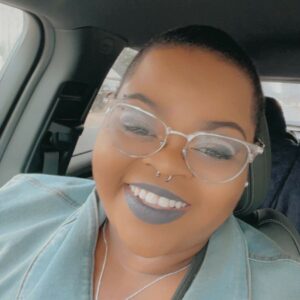In life we can often resonate with others when we have walked parallel paths, but it is when you allow yourself to create a world where the people who have molded you become the inspiration behind your art that you are able to truly tap into empathy and understanding.
Nubia Yasin’s work is completely indicative of that. Whether you are a parent, someone’s child, an individual who has an estranged relationship with their mother, this book of poetry is relatable in a multifaceted way.
Nubia, who recently turned 23, was born and raised in Memphis and is part Somali. She has been writing poetry since she was able to use a pencil. “The Blood and Body” is a raw piece of art that explores the ideas of femininity, womanhood, and motherhood. Sitting with Nubia was an honor and a privilege, and one that I am ecstatic to share with everyone.
How did you go about laying out the sequence of the book?
I knew I wanted to start and end the book with references to birth and/or my childhood. I wanted to create an arc that returns to itself. Everything in the middle was kinda intuitive. The themes of one poem flow into the next. I just based it on what felt right.
Was there a story you were trying to build?
Sort of. It’s more of a thematic arc than a story in a narrative sense. I wanted to create a self portrait. I’ve never been a painter. I can’t really draw. I’m not too hot a photographer either. But poetry I understand. I wanted my first full body of work to paint as vivid a picture as I could manage with words.
Did you consider any of the poems you wrote as transitional?
They’re kind of all transitional. The minute The Blood and Body was printed, that chapter of my life was over. There are poems in the book that I wrote in 2018. I didn’t know anything then. Still don’t know much now. But I’m learning me. Finishing this book marked my transition into a brand new chapter of my life. I’m already really excited about what I’ll write next.
What do you want readers to gain from your book?
I want readers to see me, I think. I’ve talked before about how difficult it is for me to share anything about my internal world. Sometimes I feel locked in. Poetry allows me to say things I’d never be able to talk through normally. I get to be my most honest self. I hope readers see themselves in these oft hidden parts of me. And I hope they handle me (and themselves) with care.

Did you want readers to resonate with your culture through some of the poems written?
My worldview is super influenced by my cultural background, and I think it’s pretty well integrated into my writing. It’s not necessary that folks understand the cultural customs I’m referencing. It only matters that they feel moved by the images I’m creating. If a byproduct is that they resonate with the culture, that’s cool too.
How did the way you grew up with your mother affect the way you wrote this book?
Me and my mama are twins. We look the same. We talk the same. We have the same fears. I don’t think I knew how similar we were when I was younger. The deeper I walk into womanhood, the more of her I see in myself. My mama is a secret-keeping-ass lady, and I got that from her. I dedicate so much of my writing to uncovering my own shadows. If my mama were a writer, I think she’d do the same.
“I’ve talked before about how difficult it is for me to share anything about my internal world. Sometimes I feel locked in. Poetry allows me to say things I’d never be able to talk through normally. I get to be my most honest self. I hope readers see themselves in these oft hidden parts of me.”
NUbia yasin
Since you don’t have kids, how were you able to tap into the topic of motherhood so well?
I don’t know if I tapped into it well at all. I have no way of knowing. I’ll only know if I did it right once I’m lucky enough to have my own kids. I just wrote what felt true. I wrote what I hear in my own mother’s voice, and in the voices of mothers I know. I know what it’s like to be a daughter. I know what it’s like to be a woman. If I got anything right, it’s because of those two experiences.
What is the title of your book indicative of?
“The Blood and Body” is a phrase from a poem in the book called “I Feeds Ya.” That is a poem about giving all of yourself for love, even when it’s unappreciated— especially when it isn’t appreciated. That’s partly what the book is about; all the things love has cost me and all the things it’s given me. It’s also an allusion to family bonds. The book is meant to feel like a family photo album. My family is my muse for everything I make. They make me who I am. They’re my blood and body, too.
It is clear that Yasin is passionate about this body of work and truly sees it as “their baby.” But there is no need for the baby shower, just go purchase “The Blood and Body” and take home your new edition to the family.
It can be purchased at nubiayasin.com or thebloodandbody.com.

“This poet’s imagery evokes the pain and intimacy of family and the relationship between the self and others. Yasim uses language beautifully and explores complex ideas in succinct and sophisticated ways. The way she writes about how powerful experiences affect the soul and body makes the reader feel all those things deeply and wholly. Each poem is a journey into unique and shared experiences alike.” –Elizabeth Allen , MS, MA, literature instructor
“She writes in such an intrinsic manner that I feel myself being drawn into the topic, even those that I can’t fully relate to. Some are written in the rawest first person, where you can feel yourself pulled into her being and experiencing the pain and the joy with her. Some are written like an outsider looking in, observing a situation and making generalized realizations. Each poem comes from a hundred points of view and also just one simultaneously. It’s obvious that countless lives and experiences have influenced the writing. As a mother, these words resonated hard with me. She so accurately outlines the fears and protectiveness a mother feels for her children, and approached the nurturing manner of a mother from both perspectives. Each poem falls into the next, approaching different topics with ease, all flowing together in this stream of consciousness. She uses all of them, from motherhood and childhood, to culture and expectations, to draw the reader into her story, to encourage them to let go and feel what the poem feels. As a female adjacent person, I can tell this was written for women, who have lived the woman experience, and seen the world through a woman’s eyes, whether that be a single independent women or a struggling mother or an older woman with a whole life’s worth of experience. Each poem communicates life and loss, pain and beauty, and encourages for the reader to understand and feel these concepts along with her.“ –Astril Van Kell, Memphis/Mississippi writer & poet.



